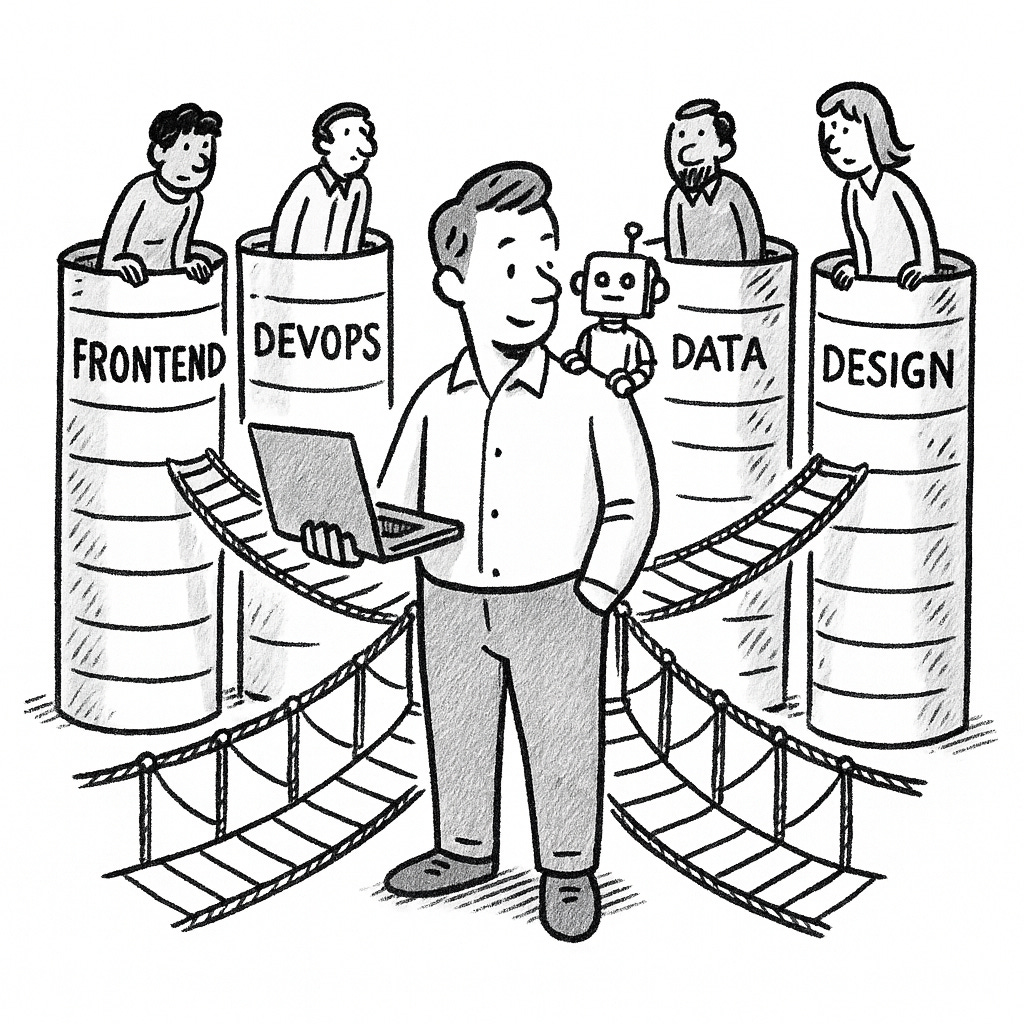The Expert Generalist in the age of Generative AI
Silo Bridging, AI Coding Tools, and the Case for Generalists
I have always been a "t-shaped generalist" when it comes to software engineering. I have deep technical roots in a few areas, but a broad swath of shallow knowledge and experience across many other domains.
That breadth has always been a strength, but it hasn't always fit neatly into traditional roles at the companies I’ve worked for. More so because most organizations are not quite sure how to capitalize on it, combined with the fact that I was not necessarily that successful at selling that skillset.
This is part of why I've been so bullish on AI-assisted coding. I know the fundamentals of most technologies that are technically "outside my lane," so being able to tap into a more efficient way to both answer questions and implement those technologies I am still learning has been sped up exponentially.
That was the preamble. Now I’m going to shamelessly self-promote this Expert Generalist article co-authored by Martin Fowler with Unmesh Joshi and Gitanjali Venkatraman that promotes the Expert Generalist concept since I now know that I am one.
I won’t spoil the article (go read it), but one theme in the piece highlights the value of software engineering generalists when it comes to breaking through vertical siloes within organizations:
"The ability to see complex systems across their full breadth can be essential when things go wrong. Faults are often not in the depth of a single technology, but in the implicit interactions between them. If specialists can't see the whole picture, they easily miss what falls between the gaps."
One of the larger projects I worked on in my last role fits that description precisely.
Vindication!
Last week I wrote a piece on this Substack called "Breaking Down Engineering Silos with AI Coding Tools: DevOps" where I posited:
"AI coding assistants like Claude Code aren't just transforming how we write code; they're enabling silo bridging between traditionally separated engineering functions. For mobile and frontend engineers who've been focused on their platforms, these tools provide a gateway to understanding infrastructure concepts and handling routine tasks that would otherwise require immediate DevOps assistance."
Martin’s article presented the following observation which completely aligns with my own experience and that quote from my piece:
"Large Language Models and tools based on LLMs are growing in prominence. We've observed that Expert Generalist capabilities are considerably more valuable with these LLMs. The relationship between Expert Generalists and LLMs is often similar to that between Expert Generalists and specialists in a team. Similarly to a specialist, an LLM can rapidly answer questions that an Expert Generalist will have when working in a new domain. This significantly lowers the barrier for exploring completely new and unfamiliar tools, offering a quick way to get started."
Could not agree more.
Here’s to the rise of the Expert Generalist in the age of generative AI. I’ve found my codified place in the world.



I get this. I grew up as that kid who knew something about everything. I would love to share with you, DM some few things I have built with free tier LMMs